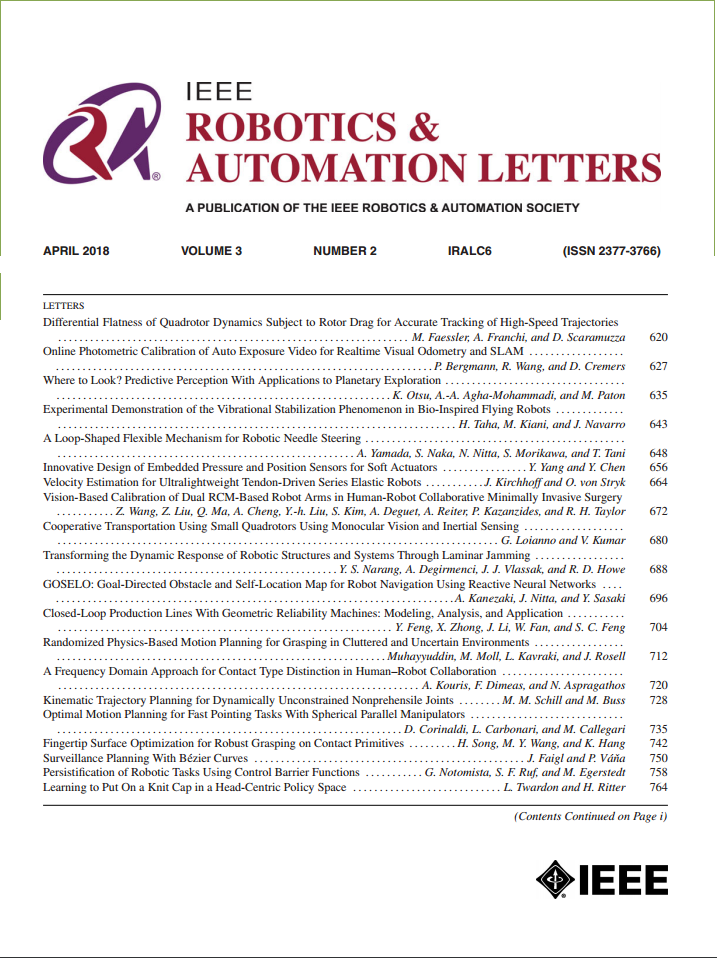具有目标数量变化的柔性机器人任务的全局接地
IF 4.6
2区 计算机科学
Q2 ROBOTICS
引用次数: 0
摘要
灵活环境中的自动化必须考虑到模糊性和不确定性。例如,在不同的工作区之间,可用对象的数量可能会有所不同。为了解决这个问题,我们引入了灵活的机器人任务,其中包含了这些模糊性。这种方法允许程序员估算所需对象的数量,而无需在执行过程中精确了解世界状态。因此,我们有意地利用了模糊性,支持跨不同世界状态的任务重用。在执行具有多样性的任务时,必须将物理对象映射到称为接地的模糊对象规范。这个基础对于整个任务和世界状态来说应该是全局正确的。我们不是用固定的对象编号建立一个单一的接地,而是检查适合任务的所有可能的对象编号。详尽地测试每一种可能性需要指数级的运行时间。为了克服这一挑战,我们提出了一种针对目标数量变化的任务的全局接地算法。我们的算法使用Kuhn-Munkres算法建立固定接地,并有效地探索灵活接地的问题空间-实现多项式运行时间。通过进一步优化二进制搜索,我们的原型展示了快速接地(在不到一秒的时间内多达252个对象)。本文章由计算机程序翻译,如有差异,请以英文原文为准。
Global Grounding in Flexible Robot Tasks With Object Number Variety
Automation in flexible environments must account for ambiguities and uncertainties. For example, the number of available objects may vary between different workspaces. To address this, we introduce flexible robot tasks with varieties that incorporate these ambiguities. This approach allows the programmer to estimate the number of required objects without precise knowledge of the world state during execution. With this, we deliberately leverage ambiguities, enabling task reuse across different world states. When executing a task with varieties, physical objects must be mapped to ambiguous object specifications called grounding. This grounding should be globally correct for the entire task and the world state. Rather than establishing a single grounding with fixed object numbers, we examine all the possible object numbers suitable for the task. Exhaustively testing every possibility would require exponential runtime. We overcome this challenge by contributing a global grounding algorithm for tasks with object number variety. Our algorithm uses the Kuhn-Munkres algorithm to establish fixed groundings and efficiently explores the problem space for flexible groundings – achieving a polynomial runtime. Through further optimization with binary search, our prototype demonstrates fast groundings (up to 252 objects in less than one second).
求助全文
通过发布文献求助,成功后即可免费获取论文全文。
去求助
来源期刊

IEEE Robotics and Automation Letters
Computer Science-Computer Science Applications
CiteScore
9.60
自引率
15.40%
发文量
1428
期刊介绍:
The scope of this journal is to publish peer-reviewed articles that provide a timely and concise account of innovative research ideas and application results, reporting significant theoretical findings and application case studies in areas of robotics and automation.
 求助内容:
求助内容: 应助结果提醒方式:
应助结果提醒方式:


